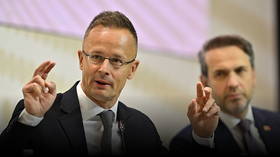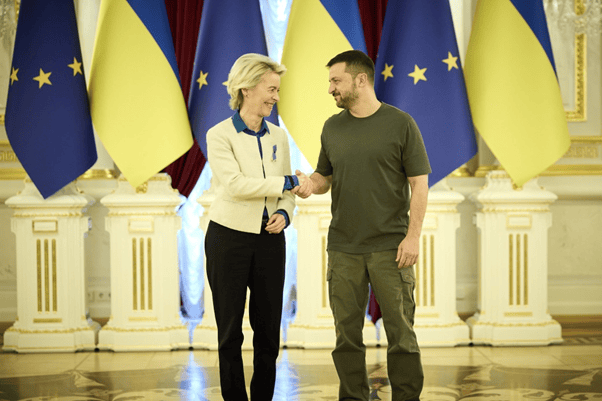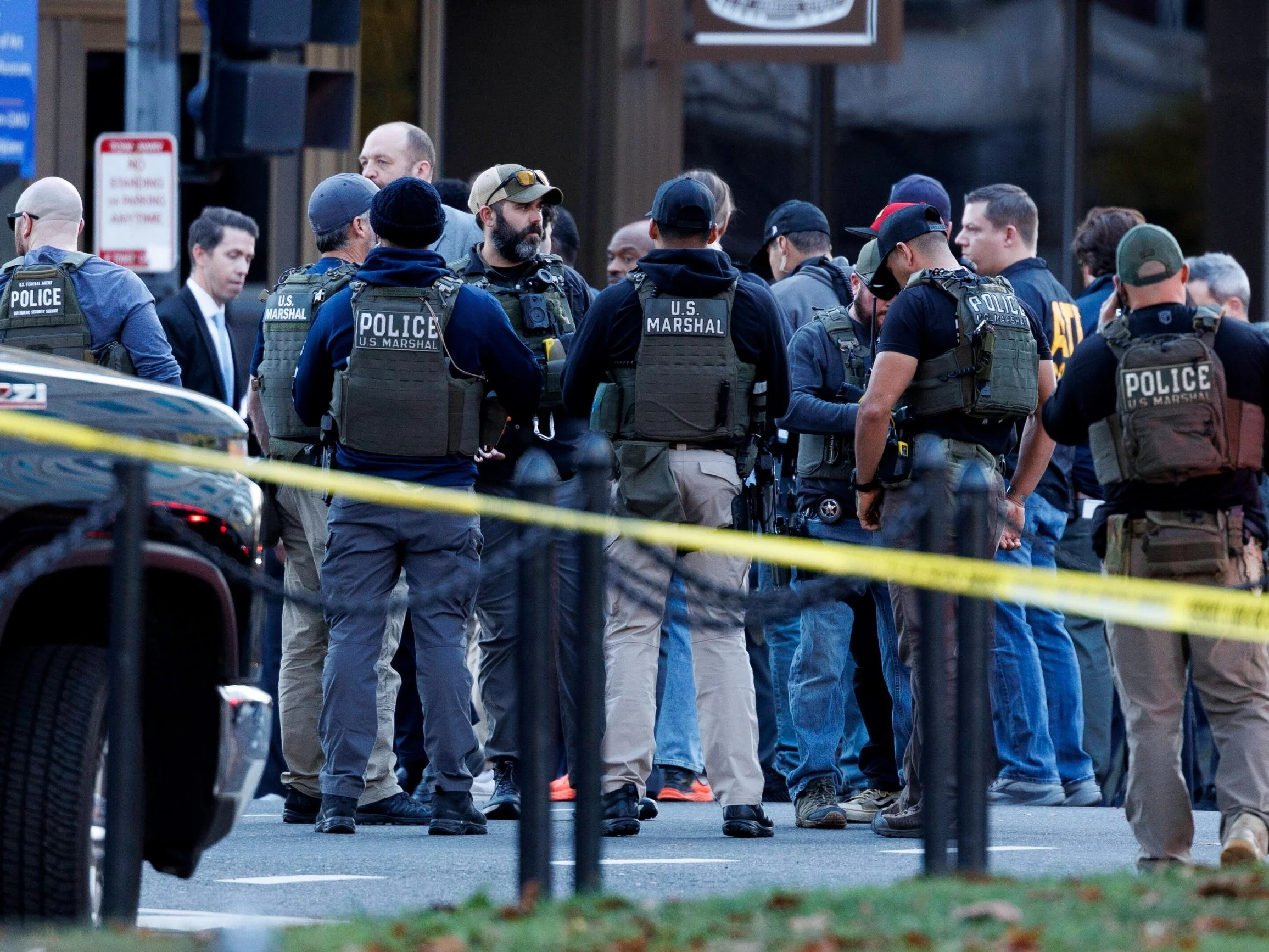
Russian propaganda is constantly active and tries to convince the public to its right both in the Russian Federation and in the world. 1 of its themes is the expected Nazism, which would be a popular ideology among Ukrainians. Russian propagandists constantly play this card and exhibit it in various configurations, and even accuse the West supporting Ukraine. The main objectives of Russian propaganda are to gain support for both the activities of the Russian Federation's Armed Forces and the political leadership of the state.
Situation of Russian media after February 24, 2022
The most crucial channel for spreading propaganda in Russia is state television. Its programs scope a large part of the population and form their views. By Investigations Lefty Center national tv is simply a basic origin of information for 60% of residents, especially the aged and outside large cities. Z Analysis The Center for east Studies shows that the most popular channels are:
- belonging to the holding company WGTRK channels Rosija 1 and Rosija 24
- Government First Channel
- owned by Gazprom Media channel NTV
Key change after February 24 – how notes Center for east Studies – there was an extension the duration of broadcast on Rossija channels of publicist programs conducted by the most crucial people associated with Russian television. The summary duration of the full week of the “News of the Week” edition was extended. The “60 minutes” programme was renewed twice a day from Monday to Friday and the regular edition of the “Evening with Vladimir Solovyov” programme. In these programs, thesis is formulated in accordance with the Kremlin line, and the characteristic feature is the shouting of guests and the advanced level of aggression.
Russian state tv is well funded by state authorities. According to data Ministry of Finance real spending on tv in the first 4th of 2022 increased by 200% compared to the first 4th of 2021. As many as 115 billion rubles were allocated for the operation of television, equivalent to $1.5 billion.
According to provisions media surveillance agencies Roskomoverning war events on tv are presented on the basis of state sources. The Ministry of Defence's communications and statements by Vladimir Putin and Dmitri Pieskov occupy a peculiar place. These messages are the first origin of misinformation on war activities.
Ukrainian Nazism in Russian media before and after 24 February 2022
It is besides worth noting that since 2014 – according to studies performed by Semantic Visions – the number of articles on Nazism in Ukraine remained comparatively low. The number of media messages on the above subject increased sharply and peaked on February 24, 2022, that is, on the day of Russian aggression. The above analysis besides shows that the number of articles depicting Ukrainians as Nazis decreased after the Russian troops withdrew from Kiev. It grew again erstwhile the fights moved to Donbas.
 Source: Twitter
Source: TwitterWhy does Russian propaganda usage triumph over Nazism?
The fight against Nazism invented by the Russian authorities refers straight to the most crucial historical event for Russians. It is the large Patriotic War (1941-1945) – a phase of planet War II that began the aggression of the 3rd Reich on the russian Union. It is commonly associated with the triumph over the 3rd Reich and is besides 1 of the foundations of the Putin system. By Investigations carried out by the Centre. Yuri Lewada as much as 74% of Russians believe that the most crucial consequence of planet War II was defeating Nazism. The triumph over Nazism is so the central point of russian collective memory. During planet War II, about 27 million citizens of the russian Union died. For this reason, war events are profoundly rooted in the collective memory of Russians due to the fact that they have affected almost everyone. Thus, the mention to Nazism utilized by propagandists leads to an highly susceptible ground. It is not surprising, therefore, that Russian propaganda uses the communicative relating to these events. It facilitates the unification of Russia's multiethnic and multilayered society around the political establishment and its war objectives.
Russian propaganda besides uses this card to indicate the historical continuation of the work of its soldiers, which was to defeat the 3rd Reich. The fight against “Nazi” Ukraine is simply a continuation of the fight against Nazism, over which russian Russia has already won once. It proves it. speech Vladimir Putin, in whom he referred to planet War II: Your fathers, grandparents and great-grandparents did not fight the Nazis in defence of our common homeland so that today's neo-Nazis could take power in Ukraine.
 Source: YouTube
Source: YouTubeUkrainian Nazism as an argument justifying the invasion
With the start of armed action, the usage of the word “war” in an incorrect context may effect legal repercussions (examples can be found Here. and Here.). At the beginning of a full-scale invasion, the leading propaganda channels argued that Russia's goal was to defend the Russian-speaking population in Donbasa. The inhabitants of the self-proclaimed folk republics – as the propaganda convinces – were to be the alleged goal of “genocide” and “regime” persecution in Kiev for 8 years. Thus, a simple communicative strategy was used: we (good Russians) defend them (civil population of folk republics) from the enemy (“Nazis” from Kiev).
She besides dominated media coveragenarrationto prove that Russia overtakes Kiev in the attack on Donbas and the Russian Federation. During the first weeks of the war, the message focused at the same time on the difference between enemies – in this case the “Nazi” authorities – and the civilian population. Civilians were portrayed as innocent and waiting for liberation from the oppression of the “Kiyan regime”, while Ukrainian authorities as oppressive and worthy of overthrow.
With the Russians retreating from Kiev and the failure of the offensive on the capital began to dominatetransmission indicating the full population of Ukraine as an enemy and worthy of denasification by even the most brutal means. Journalists in Russia began to talk openly about the request to destruct “Nazis”, to choice “worthy” Ukrainians and to take them to Russia. At the same time, they stressed the inability to enter into any peace agreement with the “fascist” government in Kiev. In this context, it is peculiarly distinctive statement Margarity Simonian, who stated that there were more fascists in Ukraine than the Russians had assumed.
It's worth mentioning here. report The Polish Institute of global Affairs, which stated that Russian propaganda builds the story of Nazi Ukraine based on the presence of highly nationalistic environments which enjoy marginal support and not a real political force. At the same time, propaganda uses the built false image of “Nazi” Ukraine to make a historical parallel in the eyes of society. As a result, the “special military operation” is presented by propaganda as a continuation of the fight against Nazism, whose ancestors presently fighting in Ukraine Russian soldiers sacrificed their lives.
Ukrainian Nazism as an argument against providing support
The recognition of the Ukrainians with Nazis besides aims to discourage the global community from giving them all kinds of support. This is simply a secondary goal of Russian propaganda. It is worth noting the complete failure of narratives aimed at Western citizens.
Vladimir Putin stressed in his speech that it was not without importance for the decision to launch a “special military operation” that the West and NATO, allegedly posing a threat, were to preserve. In your own speech He said: “I have talked about our top concerns... and the fundamental dangers that irresponsible Western politicians have created for Russia consistently... all year. I mean the expansion of NATO to the east, which is moving its military infrastructure closer to the border with Russia. (...) I would besides like to stress: focused on their own goals, NATO's leading countries support highly right-wing nationalists and neo-Nazis in Ukraine (...)".
At the same time, propaganda channels repeated the thesis of leading Russian politicians. Vladimir Putin and Sergei Lavrov blamed for the launch of the Western “special military operation”. The first of them in his speech stressedthat Russia has tried to scope an agreement with the West on a just safety strategy in Europe over the past 30 years. In his opinion, Russia met in consequence to lies and blackmail. Minister for abroad Affairs statedthat: “For all these years, our western colleagues have protected the Ukrainian government by turning their eyes on war crimes... With their silence, they encouraged the arrival of neo-Naziism and russophobia (...)". At the same time, they fall Charges towards Western countries to fund Nazism in Ukraine.
 Source: Twitter
Source: Twitter Source: Twitter
Source: TwitterRussian propaganda accuses European politicians of Nazism
There are besides narratives in the media that accuse Western leaders of confessing Nazism. The German Chancellor, for example, was the victim of specified innuendos. W program Vladimir Solovov was accused of pretending to be Adolf Hitler, on whom he was to imitate. To authenticate the message, a photograph was utilized to compare the image on which the leader of the 3rd Reich poses on a tank, with the recording on which Olaf Scholz climbs the German self-propelled anti-aircraft cannon. It is worth mentioning here that Russian propaganda besides tried to convince the public about the alleged kinship Olaf Scholz with General Waffen-SS.
 Source: Twitter
Source: TwitterRussian propaganda uses alleged Nazism of Ukrainians to dehumanize them and justify the war crimes of the Russian army
From the very beginning of the war, propaganda has dehumanized the Ukrainians by identifying them as “nassists”. As indicated earlier, the number of articles discussing alleged Nazism among Ukrainians increased importantly precisely on the day of full-scale invasion. Simultaneously vocation by journalists and publicists appearing in propaganda programs for the physical extermination of Ukrainians, the most brutal methods are to induce hatred of Ukrainian citizens, to build support for military activities and to prepare citizens for images from Buczy or Izium. 1 of the crown examples of building specified a communicative may be samples to justify the demolition of Mariupola and the crimes committed in this city.
The dehumanization of Ukrainians by identifying them as “Nazis”, “Satanists” and “Western servants” serves to justify the criminal activities of the Russian army in Ukraine. By combining Ukraine with Nazism, Russian propaganda prevents cognitive dissonance among Russian society erstwhile it hears about Buczy. At the same time it justifies the crimes of the Russian army on Ukrainian soil.
Summary
Russian propaganda acts in a two-track effort to influence the interior and external receiver. The propaganda measures aimed at citizens of the Russian Federation seem to have an effect. On the another hand, the actions aimed at the people of the West failed and did not halt Western society and authorities from providing the essential assistance to Ukraine.
All Kremlin propaganda activities aim to make the belief that Russian aggression on Ukraine is essential and morally justified. On the another hand, especially for interior use, they rise fear of the enemy, which is to be Ukraine and the collective West. Propagandists build a imagination of Russia surrounded by enemies from all sides. Among citizens, however, they give emergence to a sense of life in a besieged fortress. Moscow propaganda besides creates Russians for victims of Ukraine and the West. This is an highly convenient position to make propaganda. These actions of propagandists reenforce fear among citizens and give them assurance in the increasing reluctance of Western societies. Analysts besides observe the presence in Russian propaganda of Russian comparisons to Jews during the Holocaust. specified a message coincides with the imagination of life in a besieged fortress, and makes it credible. In addition, the Kremlovian propagandists depict the fight against the alleged Ukrainian “fascism” in the final categories – as a conflict of good with evil.
Russian propaganda rhetoric attempts to destruct the reputation of president Volodymyr Zelenski and his civilian and military associates. Propagandists effort to incite hatred against them through accusations of Nazism and a wide array of mockery and hatred speech.
Kremlin's propaganda claims the right to indicate contemporary “fascists”. The message hitting Ukrainians falls on peculiarly susceptible ground, mainly due to the inactive advanced level of nationalist views in Russian society and imperialist sentiments. Russia's unwavering inactivity besides remains crucial in this context. However, in reality, the Russian establishment is not so much hindered by “Ukrainian Nazism”, but by the Ukrainians' desire to independency and to leave the Russian sphere of influence.
Sources
Yuri Levada Center 1: https://www.levada.ru/2021/08/05/Russian-medialandshaft-2021/
Center for east Studies: https://www.osw.waw.pl/publications/commentaries-osw/2022-05-06/propaganda-massion-Russian-television-in-count-war#_ftn2
Ministry of Finance of the Russian Federation: http://www.eeg.ru/downloads/obzor/rus/pdf/2022_04.pdf
Roskomover: https://rkn.gov.ru/news/rsoc/news74084.htm
New York Times: https://www.nytimes.com/interactive/2022/07/02/world/europe/Ukraine-nazis-russia-media.html
Semantic Visions: https://twitter.com/SemanticVisions/status/1547483296082296833?s=20&t=eZYMYOBtdRtrbhoXYqSBA
Yuri Lewada Center 2: https://www.levada.ru/en/2020/05/28/victory-in-world-war-ii/
Transcription into English by Vladimir Putin: https://web.archive.org/web/20220224142134/https://www.bloomberg.com/news/articles/2022-02-24/full-transcript-vladimir-putin-s-televised-address-to-russia-on-ukraine-feb-24
Republic 1: https://www.rp.pl/law-carne/art35805201-Russian-duma-15-years-prison-for-false-information-about-military
Republic 2: https://www.rp.pl/armistic conflicts/Article35838521-lawrow-Russia-non-attacking-Ukraine
Polish Institute of global Affairs: https://pism.pl/publications/Russian-dezinformation-na-themat-ataku-na-ukraine
Deutsche Welle: https://www.dw.com/en/fact-check-do-vladimir-putins-justifications-for-going-to-war-against-ukraine-add-up/a-60917168
CNBC: https://www.cnbc.com/2022/11/25/putins-supporters-call-for-the-extermination-of-Ukraine.html













![Papież Leon XIV odwiedził Błękitny Meczet w Stambule [ZDJĘCIA]](https://cdn.wiadomosci.onet.pl/1/94sk9lBaHR0cHM6Ly9vY2RuLmV1L3B1bHNjbXMvTURBXy8zOGE2ZDA1YzcxMjAyN2EyZjE2Y2VmZWYzNGEzNmRiMC5qcGeSlQMAzNDNB9DNBGWTBc0JYM0GQN4AAqEwB6ExBA)
